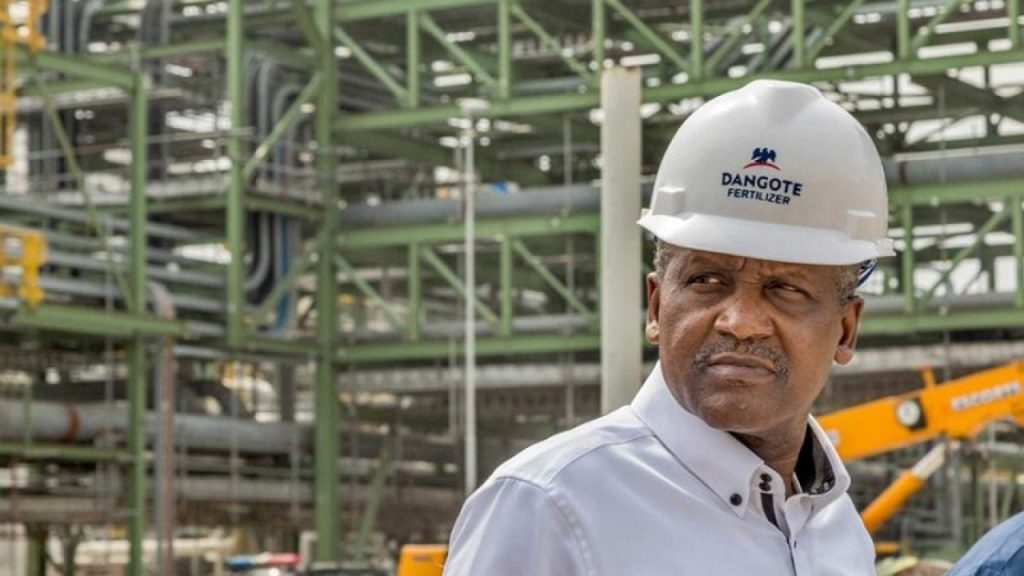Dangote Refinery Rebuts NUPENG Allegations, Emphasizing Commitment to Fair Labor Practices and Market Competition
Dangote Petroleum Refinery has vehemently denied allegations leveled against it by the Nigeria Union of Petroleum and Natural Gas Workers (NUPENG), characterizing the claims of anti-labor practices, monopolistic behavior, and planned fuel price hikes as “entirely unfounded.” The dispute originated from NUPENG’s protest against what it perceived as a ban on newly recruited drivers of Dangote’s CNG-powered trucks from joining the union. Dangote asserts that its employees are free to affiliate with any recognized trade union, refuting the claim that drivers are coerced into waiving their union rights. The company clarifies that the disagreement is specifically between NUPENG’s Petrol Tanker Drivers unit and the company, and does not involve any infringement of workers’ rights by the refinery.
At the heart of the dispute is Dangote’s deployment of over 4,000 CNG-powered trucks, an initiative NUPENG fears will lead to job displacement. Dangote counters this argument, positioning the CNG truck deployment as a crucial element of Nigeria’s energy transition strategy. The company emphasizes that each truck requires a six-person crew, with drivers earning salaries well above the national minimum wage, along with benefits including medical coverage, pensions, housing allowances, and access to housing loans. Dangote projects that by the end of the year, 10,000 CNG trucks will be operational, generating over 60,000 direct jobs. This, the company asserts, demonstrates its commitment to job creation rather than displacement.
Addressing accusations of monopolistic practices, Dangote highlights the deregulated nature of Nigeria’s oil sector, overseen by the Nigerian Midstream and Downstream Petroleum Regulatory Authority. The company points to the existence of over 30 refinery licenses issued to private entities, including BUA, Aradel, Walter Smith, and the Edo Refinery, as evidence of a competitive market. Dangote argues that its presence has revitalized the downstream sector, leading to the reopening of petrol stations and boosting investor confidence, rather than stifling competition. The company draws a parallel with its impact on the cement industry, claiming that its entry eliminated Nigeria’s dependence on cement imports and spurred the growth of other domestic producers.
Furthermore, Dangote denies any intention to increase fuel prices. Instead, the company contends that its operations have contributed to fuel price stability and even reductions. Dangote cites a 30 percent decrease in diesel prices over the past year and asserts that petrol prices in Nigeria are currently lower than in oil-producing nations like Saudi Arabia and 40 percent lower than in neighboring West African countries. The company underscores its N720 billion investment in CNG infrastructure as proof of its dedication to lowering logistics costs and enhancing nationwide fuel distribution, ultimately benefiting consumers.
Dangote maintains that it enjoys a positive and collaborative relationship with all recognized trade unions, including NUPENG, and refutes accusations of abandoning conciliation efforts. The company claims that the union did not formally communicate its grievances before taking the matter public. Dangote acknowledges and appreciates the intervention of the Federal Government, particularly the Ministry of Labour and Employment, and expresses its full support for the ongoing mediation efforts. The company holds the Minister of Labour and Employment and other key ministers involved in the mediation in high regard and denies acting in any way to undermine their involvement.
Beyond the immediate dispute, Dangote highlights its contribution to the Nigerian economy, including a significant drop in cooking gas prices due to increased domestic supply, fostering cleaner household energy consumption and reducing reliance on firewood and kerosene. With over 570,000 direct and indirect jobs created, including through infrastructure projects in roads, power, and water, Dangote Refinery positions itself as a hub for skills development and technology transfer in Nigeria. The company dismisses the monopoly allegations as recycled falsehoods, emphasizing its commitment to investing in Nigeria’s future and encouraging other companies to follow suit.
However, NUPENG President, Williams Akporeha, contradicts Dangote’s claims regarding the agreement reached at the Department of State Services (DSS). According to Akporeha, despite the agreement signed in the presence of three ministers and a DSS Deputy Director General, Dangote instructed his drivers to remove NUPENG stickers from their trucks and forcibly enter the refinery to load products, violating union regulations. When union officials intervened, Dantata allegedly flew over the scene in a helicopter and called in naval personnel, seemingly to intimidate the union officials. This conflicting account exacerbates the dispute and raises concerns about the implementation of the agreed-upon resolution.














